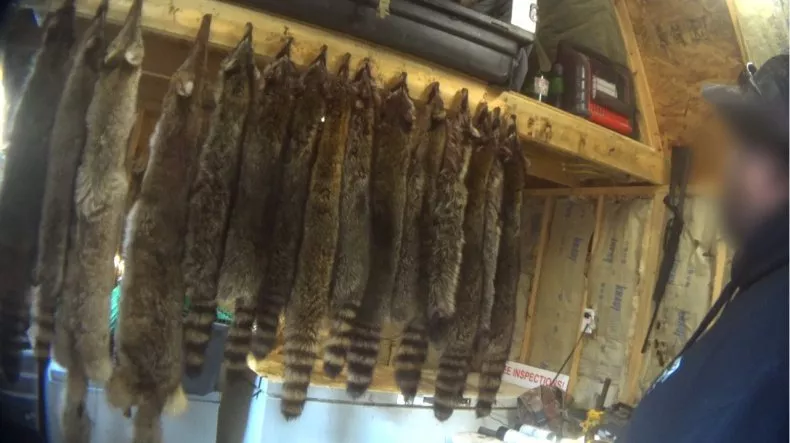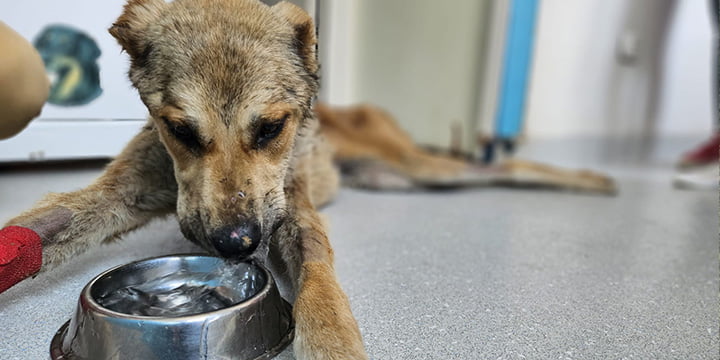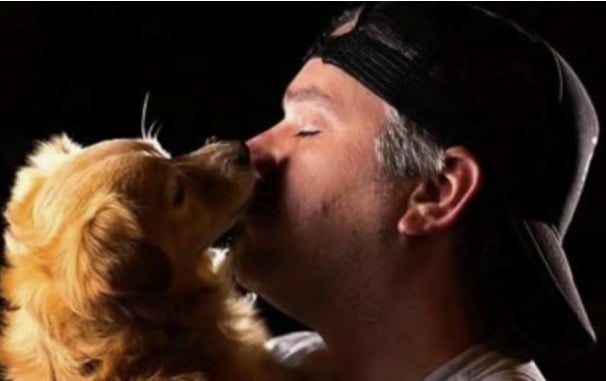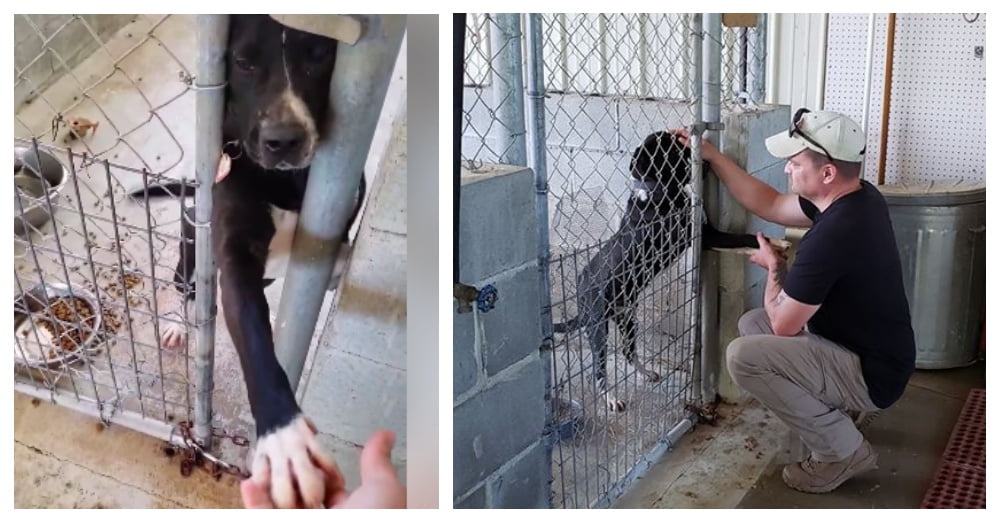Bludgeoned raccoons are among the victims of the “shocking brutality” of the U.S. trapping industry, an undercover investigation has found.
Trapping is a traditional form of hunting, where traps are laid out for the purpose of catching certain animals. It is carried out for a variety of reasons, with fur being the main one.
However, it can also be used as a form of recreation, or for getting rid of pests.
Many countries have banned trapping altogether, or the use of certain traps. For example, trappers often use conibear traps, which are laid out on the ground and snap up to suffocate and break the victim’s neck.
Several U.S. states have a full ban on the traps, including California, Colorado, Florida, Massachusetts, New Jersey, Rhode Island, and Washington.

According to animal advocacy non-profit, Born Free USA, millions of animals are killed each year by trapping and sold for their fur.
The trapping investigation, undertaken in Iowa by the non-profit animal organisation, in conjunction with Humane Society International, found “harrowing” evidence of “the inherent cruelty of trapping,” Humane Society International said in a statement.
In the state of Iowa, it is legal to trap animals including raccoons, coyotes, badgers, foxes and otters.
The investigator, who must remain anonymous, attended a National Trappers Association Convention in July, and a trappers education course in November to learn more about the practice.
He also went out in the field with three trappers, over November and December, to witness how animals are caught in this method of hunting.
Distressing footage captured by the investigator shows a man repeatedly hitting a live raccoon with a bat. Photographic evidence also shows a dead fox caught with a trap around its legs. The fox had tried to get free and “the leg had snapped clean through,” The Humane Society International said in a statement.
A representative from Iowa’s Department of Natural Resources also spoke to the undercover investigator on ways to find loopholes around trapping law, during the convention.
The global fur industry was worth about about $40 billion in 2014, according to figures from the International Fur Federation, with fur farming valued at $7.8 billion, and the industry as a whole employing over a million people. A University of Copenhagen study from 2021 indicated the global fur retail trade is now worth just over $20 billion.
Newsweek has contacted the National Trappers Association and the Department of Natural Resources for a comment.
The investigator told Newsweek that the equipment used to kill the animals, once trapped, involved “baseball bats, brooms, axe handles, and other blunt objects.”
These instruments are preferred as they preserve the pelts, the fur of the animal, he said.
Once the fur was obtained, the trappers usually sold them to local fur buyers who then sell them at auctions. The investigator said trapping was primarily a hobby for those out in the field.
“They were proud of the ‘artistry’ and community that trapping brings to their lives. The community fostered a boys club culture and the humour was often crude and deliberately vulgar,” the investigator said.
“In private insider spaces like the president’s reception [at the convention], people at my table were expressing a need for violent resistance. More intimately, I did find that many of the trappers were eager to help others learn about the practice and were relatively trusting of newcomers.”
Following the investigation, Humane Society International and Born Free USA are calling on U.S lawmakers to pass a Refuge from Cruel Trapping Act. This would ban trapping using leg-hold, snares and body gripping traps.
The investigator said: “As animal protection organisations, our aim was to gather evidence in the field in order to speak out against the cruelty meted out to our wildlife. We will use the information to persuade lawmakers to end the use of cruel traps, to support fur sales bans, and to educate the public of the true horrors of trapping.”
This article has been updated to mention Humane Society International and include additional quotes from the investigator.
- 4 “lời khuyên” của chuyên gia để nuôi dạy con gái
- Không cho chị gái chồng mượn nhà, tôi bị cả gia đình chồng lạnh nhạt
- Ô tô càng nhiều công nghệ hỗ trợ lái thì chi phí sửa chữa lại càng tốn kém
- 3 thứ không nên đặt trước cửa nhà nếu không muốn gặp xui xẻo
- Để cuộn thép rơi đè bẹp ô tô con, lái xe đầu kéo bị xử lý thế nào?
















